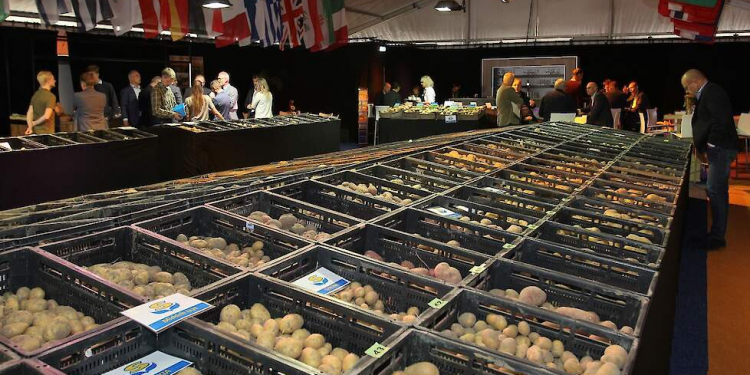Corona is forcing the potato trading houses to think about a different format for the traditional variety shows this year. A number of companies opt for an event online, others have decided to postpone the shows for a year. In this series on Akkerwijzer, the trading houses talk about their showpieces and the challenges. Today in part 5: Sheep Holland. “The traditional breeding work is under pressure.”
Schaap Holland sees challenges in the rapidly changing market with an increasing demand for sustainable products. As a trading house, we want to implement this together with chain partners, says director Hans Geling. “We are looking for stable and multifunctional varieties that we can use in different markets.”
The Aromata variety, Schaap Holland’s showpiece, fits into that picture. This variety grows very fast and is widely grown by both our growers in the Flevo polders and in Germany, says Geling. “The variety is versatile, resistant to AM and wart disease and does not germinate quickly in storage. The Aromata is therefore suitable for the international table market, the peeled market and seed potato cultivation. ”
Sustainable potato cultivation
Aromata works well as a table potato because it is tasty, beautifully yellow on the inside, and goes well with a variety of dishes, says Geling. “An additional advantage is that Aromata is hardly sensitive to blue, so that after peeling a beautiful potato appears that can be used in its entirety.” It is also a suitable variety for the seed potato grower, partly because it cleans up nematodes. This also applies to consumer cultivation, after Aromata the land may be suitable for use as bulb land, he says. The variety also fits in the fresh fries program, but is less suitable for the fast food service. “We have put in a lot of time and energy to get the Aromata to a high level, to a variety that fits in sustainable potato cultivation.”
Table potato is running well
The potato market is experiencing a difficult season and Schaap Holland is noticing that too, says Geling. “The sale of seed potatoes is clearly more difficult than in previous years and the catering industry is flat.” He does see a few positive developments in the consumption potatoes. “We sell a large part of our ware potatoes to the retail sector. Due to the corona and the lockdowns, turnover in supermarkets has increased enormously. The consumer puts the regular table potato back on the menu: floury, waxy and organic are going well. ”
New breeding techniques
Another new challenge is breed development. The traditional way of growing work no longer suits the speed that goes with sustainability, Geling believes. “The traditional breeding work, in which the Netherlands has grown, is coming under pressure. Crop protection products are disappearing and requirements from the retail sector are becoming stricter: it is urgent to make modern genetic technologies available to growers to keep up with the rapid sustainability. We work together with the entire chain: growers, breeding companies and institutes and jointly with companies that are also customers or suppliers of Schaap Holland. ”
In addition, the trading house is looking at hybrid seed companies. We will follow that closely, says Geling. “I dare not say whether that will be the future, but we keep an eye on all developments around the discovery of new varieties.”







